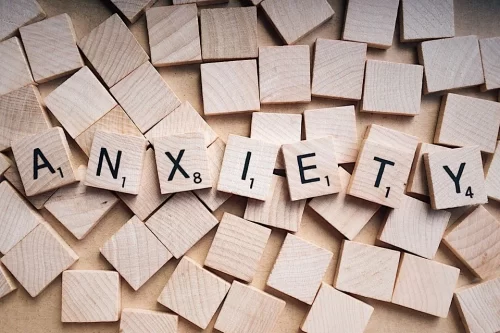Treating Anxiety: When Is Professional Help Required?
Some health problems are easy to identify and less challenging to know when medical help is necessary by looking at the signs or symptoms. However, mental health problems like anxiety sometimes do not exhibit clear signs. Therefore, some people walk around without knowing that they have mental health issues that require professional assistance. The common signs include increased respiratory rate, heartbeat, and blood pressure. But what causes anxiety? Anxiety disorders are associated with high alertness, which eventually becomes disadvantageous to mental and physical health. Patients experiencing anxiety should seek professional help before their problem leads to other health issues that might require advanced medical services. Here are situations when professional help is necessary.
Anticipating Worst-case Scenarios
Patients suffering from anxiety often anticipate worst-case scenarios. For example, they fear too much before simple activities such as holding a presentation at work, imagining that their words might not provide the expected information. This problem may seem normal, and those experiencing it might hesitate to seek medical help. They often wonder: Do I have anxiety? People who worry too much should seek assistance from a mental health expert. Cognitive behavioral therapy helps patients identify irrational thoughts and gradually learn to discard old beliefs or replace them with more realistic and healthier ones. Therapists could also help patients manage anxiety through proven techniques such as breathing and mindfulness exercises.
Challenges in Completing Daily Activities
Some anxiety cases disrupt daily activities, making it hard to complete some work and household chores. Patients with this problem usually have difficulty keeping their living space clean, driving, going out, or interacting with colleagues and family members. When anxiety significantly interferes with daily tasks, the affected person should seek help. A competent therapist can help the patient create coping strategies and adaptive behaviors. This often involves gradual exposure therapy whereby the individuals become mentally conditioned to expose themselves to fearful situations in a controlled manner. This helps them to shake off anxiety triggers and organize their life better.
Experiencing Sleeping Problems
Sleep disturbance is another sign of severe anxiety, and patients usually experience difficulty both when falling asleep and staying asleep. Changes in sleep patterns can worsen the physical and mental condition, which could make stress management more difficult. This explains the importance of seeking professional help when patients start experiencing sleeping problems. Experts can use various remedies to help patients improve their sleeping patterns, including cognitive restructuring to address the negative thought patterns causing sleep problems. They can also recommend relaxation techniques to enhance sleep quality or help patients develop strategies to improve sleep hygiene and foster a healthy sleep pattern.
Irritability and Restlessness
Anxiety might appear as moodiness and difficulty in calming down. This consistent agitation could make a person explosively furious, frustrated, or unable to relax, which in turn can contribute to a more severe cycle of anxiety. If a client experiences chronic anger and restlessness, therapists show the client how to adapt and develop calm and healthy coping strategies. They also teach patients to be assertive, communicate effectively, and manage conflicts. Therefore, patients can communicate their needs effectively and handle situations that may arise during social interactions. Additionally, therapists employ relaxation methods and stress-management skills to help clients deal with their emotions and aggressive situations.
Long-lasting symptoms highlighted the call for intervention from health specialists. Mental health professionals are better placed to diagnose the problem, identify underlying causes, and facilitate appropriate therapy. Asking for support in time could make anxiety bearable and improve mental health and overall well-being.





Asking for help from a professional is a great thing. Thanks for sharing this amazing information with us.
Such great information. Asking for professional help would be the best way to go, I believe.
I had really bad anxiety and depression about two years ago. It was awful. I was struggling financially and that didn’t help matters at all. Thankfully, I’m in a much better place thanks to my psychiatrist.
knowing family and friends dealing with anxiety with various methods (including therapy), it is definitely useful to learn the signs of when to ask for help
This is a great description of anxiety! There are so many things that people don’t realize are anxiety
Anxiety is hard to overcome. I think a big portion is trying to get help, and finding the perfect medicine that will go well with you.
My sister has severe anxiety issues. However, with the professional help and therapies, she is now doing a lot better! Thanks for these helpful tips.
It is good to know when it is time to reach out to a professional. It can be tough when you are going through it every day, and not know what the threshold is for seeking help.
Seeking help for managing anxiety when it exceeds your current abilities is crucial for maintaining well-being. Professional guidance can definitely provide effective strategies and support to navigate through challenging times.
Super helpful. It’s a constant question for me, too — if I have anxiety. I think it’s the stress brought by my work.
If you want to know when anxiety needs professional interventions, this article is for you. The potential red flags are helpful, too.
I’ve struggled with anxiety my entire life and this is a very helpful read. I find that I go through phases, depending on the level of stress going on.
This is good advice. I think too often we try to do things on our own and sometimes we need help.
With so many people suffering from anxiety it is important to identify when to call a professional. It can help to learn coping strategies to help with this.
The advice is on point. I used to see the worst case scenario when my son was a baby. Little by little with therapy I was able to conquer that feeling.
Great advice. I know anxiety can be difficult to deal with. My mom has it and is on meds. They help a lot.